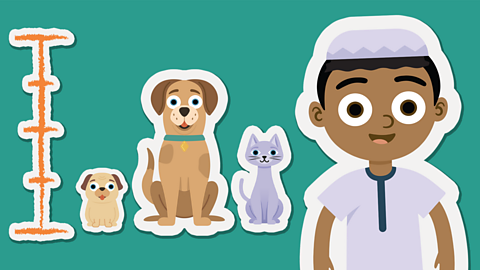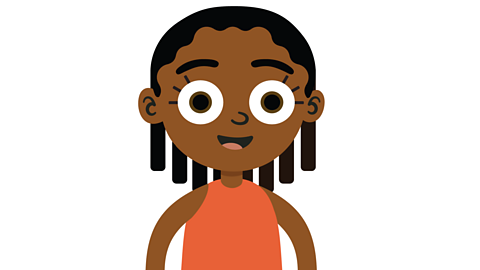
Why do we measure in litres?
Capacity is the amount of liquid a container can hold.
Volume is how much liquid is in the container.
We can measure both in millilitres and litres.
A litre is much more than a millilitre.
1 litre = 1000 millilitres
We shorten litre to 'l', so we might also say:
1 l = 1000 ml
We use litres to measure larger capacities. For example, how much water you might drink in a day or how much paint is needed to paint a room.

Watch: Measuring length, weight and volume
Example 1
Can you match these containers to their capacity in litres?
- Which one is 500 litres?
- Which is 1 litre?
- Which is 10 litres?

‚úì Did you get these answers?
| Container | Capacity |
|---|---|
| Milk bottle | 1 litre |
| Bucket | 10 litres |
| Paddling pool | 500 litres |
Example 2
Jasmine has two bottles, one filled with 5 litres of juice and an empty bottle that holds 3 litres.
She fills the 3 litre bottle by pouring from the 5 litre bottle.
Which bottle now has the most juice?
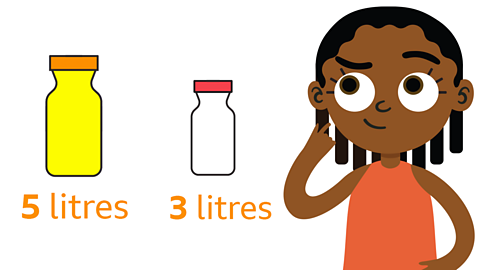
‚úì After pouring 3 litres from the 5 litre bottle, there will be 2 litres left.
5 – 3 = 2 litres
The smaller bottle now has 3 litres of juice, so it has more juice.
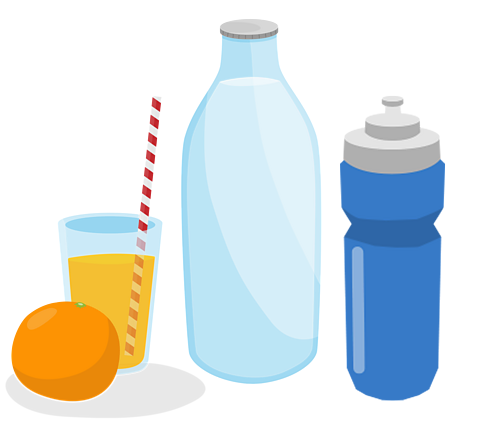
Activity
Be your own measurement detective and work with a parent or guardian to find objects around your home which hold up to 1 litre, for example a bottle of water or a can of orange juice.
- Can you find a container that holds exactly 500ml?
- Can you find a container that holds exactly 1l?
- Which container holds the most?
- Which container holds the least?

Karate Cats Maths game. game
Train with the Karate Cats to become an expert in addition and subtraction, multiplication and division, place value and more!

More on Measuring
Find out more by working through a topic
- count10 of 10
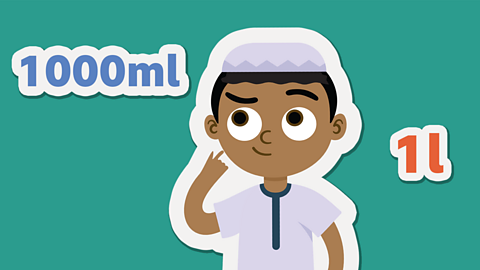
- count1 of 10
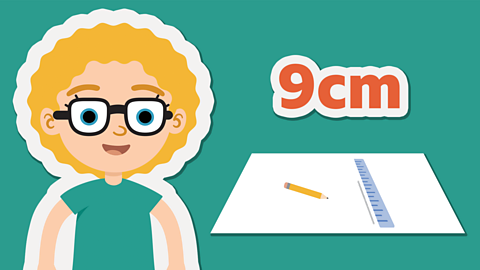
- count2 of 10

- count3 of 10
